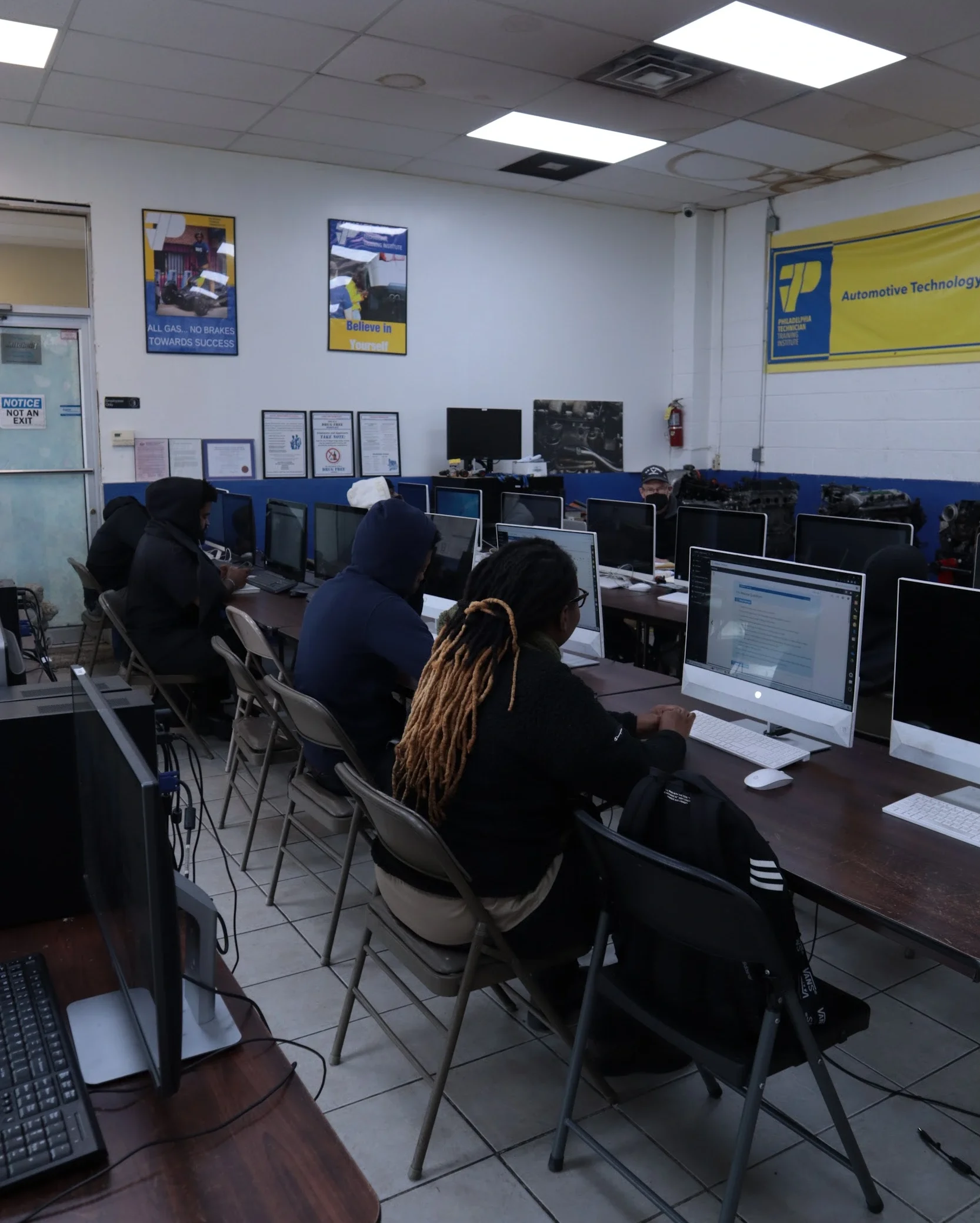Factories don’t look the same anymore.
Gone are the endless lines of workers doing the same motion over and over.
Now?
You walk in, and the first thing you notice is the sound.
A low hum.
Robotic arms swinging with precision. Sensors blinking like city lights at night. CNC machines are able to geometrically shape metal with remarkable precision.
An individual in the control room is hunched over a screen. Watching. Programming. Keeping the whole place alive.
And you?
You realize this is not the world of your parents’ factories.
This is something else.
A world running on automation training in Philadelphia. A world moving so fast it can leave you behind if you’re not ready.
You want a trade career. Something solid. Something real.
But the job listings?
They read like a foreign language. CNC operation. PLC programming. Robotic welding maintenance.
You know your way around tools. Machines don’t scare you. Hard work doesn’t either.
But coding? Sensors? Systems talking to each other?
That’s where things feel out of reach.
And here’s the truth.
The factories don’t have time to wait for you to catch up. The world of industrial automation in Philadelphia is moving forward—with or without you.

One day, welders were still holding torches. Next, robotic arms took over repetitive welding tasks, delivering perfect precision every time.
Machinists used to handle cutting tools directly. Now, CNC machines do it faster, better, and cheaper.
And here’s the catch.
None of this means humans disappeared. It means their roles changed.
You program the robotic welder instead of handling the torch.
Instead of operating the tool itself, you alter the settings of the CNC system.
You will discover how sensors can identify mistakes in advance, rather than having to wait for them to emerge.
That’s why advanced welding automation training in Philadelphia exists. To teach you the language of the new factory floor.
Forget the old classroom model. Rows of chairs. A whiteboard.
You will be immersed in the chaos of modern industrial training in Philadelphia. Into real workshops. Real systems.
Here’s what you learn:
Not abstract theory. The kind of math that keeps voltage steady. Programs CNC tools. Calibrates robotic arms.
The machines are really strong. Their speed is increased via automation. Preserving one’s safety is paramount—it is simply a matter of survival.
Power trains. Shoes with belts. Every component that rotates. They teach you how they function. Furthermore, the causes of their inadequacy.
Eyes are like little sensors. The brain and spinal cord are, in a nutshell, potassium channels. The most important thing is to help kids develop their interpersonal communication skills in a natural way.
Air pressure. Power of fluids. Part of the automated world couldn’t function without these. Education teaches you how to maintain its efficacy.
Analyzing data. Controls are being adjusted. Maintaining the timely completion of the project.
And yes—PTTI programs include all this. Hands-on. No fluff. No guessing.
You get hired. Day one.
The machines stare back like alien creatures. Screens flashing errors you’ve never seen before.
Everyone else seems to know what to do.
You stand there thinking maybe you missed something. Perhaps you should have learned this already.
Promotions pass you by.
The job ads keep demanding skills you never learned.
And here’s what stings—Deloitte and The Manufacturing Institute warn that 2.1 million manufacturing jobs might stay empty by 2030.
Why?
Because companies are desperate for workers who can speak the language of robotics, CNC programming, and industrial automation in Philadelphia, and too few people who can.
That’s the opportunity staring right back at you.
To close that gap. To ensure you can walk into a factory and understand not just the machines but the systems behind them.

The world becomes your oyster once you complete your training.
Automotive plants. Aerospace facilities. Electronics manufacturing. Food production lines.
They all need people trained in industrial automation in Philadelphia.
People who can program CNC machines. Troubleshoot sensors. Keep robotic welders running without errors.
Roles like:
Jobs that pay a proper wage. Possible futures. Those abilities that are in demand even when new technologies emerge.
This is what catches folks off guard.
Trades made it through the technological revolution. Lives were forever altered by it.
Who is this robotics-taught welder? The machine operator who deftly programs PLCs?
Everything becomes clear.
That’s why skilled trade training today blends old-school mechanical skills with new-school digital knowledge.
It’s why PTTI programs don’t stop at theory. They give you certifications. Industry connections. Real practice on real machines.
Because companies don’t hire people who read about automation.
They hire people who can walk into the factory and keep it alive.
And here’s the truth.
The future won’t wait.
Factories will keep getting smarter. More connected. More automated.
But behind every robotic arm. Every CNC machine. Every blinking sensor, there’s a human keeping it all running.
Someone who understands hydraulics and programming. Safety systems and software updates.
That someone could be you.
If you get the right automation training in Philadelphia—the kind that turns confusion into confidence.
The kind that makes tomorrow’s factories feel less like a mystery and more like home.
Factories are changing.
Faster than anyone expected.
But the opportunities? They’re real.
With manufacturing training in Philadelphia, advanced welding automation training in Philadelphia, and skilled trade training built for modern systems, students step out ready.
Ready to program. To troubleshoot. To innovate.
Ready to build the future—one robotic arm, one CNC machine, one factory at a time.
Read more: